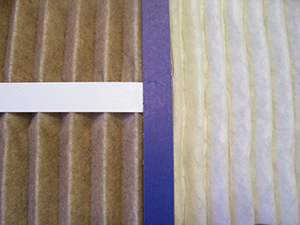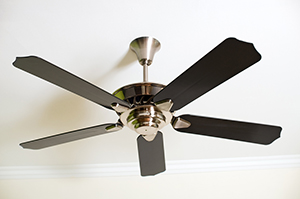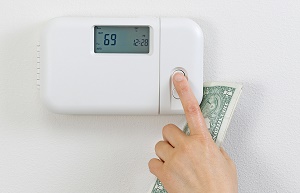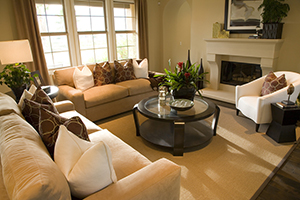Energy Saving Tips for Summer and Winter
Date: September 1, 2016
ARTICLES
ENERGY SAVING TIPS FOR SUMMER AND WINTER
AUG 31, 2016
For us Arizona dwellers, we have come to the conclusion that there are only two distinguishable seasons in the Valley – summer and winter. The fall and spring seasons are mild enough that they often pass by without us noticing; a chill in the air before fading into winter is the only taste we get of fall, and spring passes by with a cool breeze as temperatures rapidly heat up. Energy costs during the major seasons can go up if you aren’t careful, so we’ve put together a guide of energy saving tips for summer and winter that will help you be prepared, and hopefully, lower your bills in the process.
ENERGY SAVING TIPS FOR SUMMER
The hot summer months are probably of most concern to Arizona homeowners. Knowing how to efficiently keep your house cool and comfortable while also not paying out the roof for energy is something that everyone wants to know. Here are our tips for the summer season in the Valley.
1. MAKE SURE YOUR A/C UNIT IS THE RIGHT SIZE
There actually is a science to your air conditioning unit. The process of choosing the right A/C for your home is called load calculating, and it involves weighing in different factors like the orientation of the home and even roof color. The common occurrence with a lot of air conditioning installations is that they end up oversized. If a unit is oversized, it will eventually end up costing you more money, because it will have more start-ups and shut-downs over the course of a day. This will put more wear and tear on the unit, making repairs more likely and potential replacement a sooner burden then you hope for. This will also decrease the efficiency of the unit and ultimately result in higher energy costs as time goes on. Putting in a smaller correctly sized unit will help you save money up front as well. Properly sized air conditioners will also benefit you by dehumidifying your home – not a common issue for those living in the desert, but during the hot and sticky monsoon season, you might find it to be a necessity. At Donley Services, a Comfort Solution Consultation is available to assess the size of your unit, and a load calculation test is performed to ensure you get a powerful unit that won’t cost you a fortune.
2. KEEP FILTERS CLEAN
Your air conditioning unit will run more efficiently and save you money if it is in the best possible shape. Filters on the unit can become dirty and cause a lot of problems, from attracting allergens to using more energy to run. This is because the buildup on the filters causes frost to build up on the coils in the unit, which restricts airflow. This leaves your unit working harder and also will result in an uneven cooling of your home. A dirty filter can also increase the number of startup cycles that the air conditioner performs, which puts more wear and tear on the unit while wasting energy. Making sure you get your filters replaced every month or few months will ensure the longevity of your air conditioner as well as a smaller energy bill when the time comes.
3. ADJUST YOUR THERMOSTAT
It may seem like the opposite of what you should be doing, but it is advised that whenever you leave the home for an extended period, you should turn up the temperature on your A/C unit about four degrees. The way air conditioning systems work the most efficiently is during long stretches of time. If you leave the temperature at the same level while you are away, then there will most likely be startups and stops during that time period. Turning it down just a few degrees will reduce these cycles, therefore saving you more energy. It is recommended by the US department of energy to program your thermostat to the highest possible setting that you can stand. The less of a difference between the outside and inside air, the less energy you waste. Of course, this could be unbearable in the months where temperatures reach the triple digits, or even in the nineties, so a good rule of thumb is about 78 degrees, if possible. Programmable thermostats are also available to make things easy, allowing you to set different different temperatures to different times of the day. This way you can program the temperature to increase when you leave for work in the morning, and have it cooling down your house to a comfortable climate for when you get back home. This can also help you save money during peak hours when energy providers charge more for running your A/C. If you pre-cool your house enough before these times, you might not have to use it at all when the cost is high.
4. UTILIZE CEILING FANS
A way to combine a higher thermostat setting with a pleasant living environment is to use your ceiling fans more often. Comfort does not have to be compromised when you are trying to save energy, so turning on the fans in your home is an optimal solution to keeping it cool. There is actually more to this, however, than simply turning on the fan. In the summer, optimal cooling occurs when the fan is spinning in a counterclockwise direction. You can test this by standing right under the fan and seeing if you feel a breeze. If you do immediately, then it is aimed in the right direction. There are also buttons located on the sides of fans in some cases. The air is pushed down when it spins in this direction, causing a breeze that will make you feel cooler without having to turn your thermostat down lower.
ENERGY SAVING TIPS FOR WINTER
While our main concern in Arizona is probably how well our house keeps cool during the dreaded summer season, there are actually many ways to save energy costs during the winter.
1. TURN DOWN THE HEAT
The same rules tend to apply when we are talking about saving money in the winter versus the summer. If you know that you are not going to be in the house, investing in a programmable thermostat will save you energy and money. Luckily, for those in the Valley, temperatures during the middle of the day do not tend to be unbearably cold. Therefore, you can maximize your heater by only running it at max potential in the chilly mornings or when the sun goes down. Turning your heat down to as low as can be comfortable will keep your heater from running so often and will allow it to run more smoothly when it does. If you find certain rooms are more chilly than others, consider investing in portable space heaters that will allow you to keep your thermostat low but yourself warm.
2. CONTROL THE LOAD
There are a lot of things in our homes that can waste energy. To save costs on your next bill, consider getting a load controller installed. These are connected next to your breaker panel outside and will be hooked up to your AC units, water heater, heater, dryers, and other appliances, which are considered loads. The purpose of the computer is to monitor usage of these things and determine where costs can be cut. It then will shut off the least important loads and restores them later. These are all based on a pre-set demand level that you program into the system, so that you can use it and adjust it as needed before you let it do it’s job. This ensures that your lower priority appliances do not weigh down on your energy bill if they don’t need to. You will most likely not even notice that the load controller is doing anything, but it will cut costs regardless. These will save you an upwards of ten to forty percent on your energy pills per year, depending on how they are utilized.
3. LET THE LIGHT IN
The good thing about living in Arizona is that the sunlight doesn’t just disappear in the winter– and actually, temperatures remain relatively warm, at least during the day. While making adjustments to the thermostat is a great start, another way to let heat in naturally is to make sure your windows are open. South-facing windows are the most effective at heating your home, so open the curtains and let the natural light in. Closing the curtains at night will also help you to insulate your home and keep it nice and cozy.
4. KEEP AN EYE ON YOUR RADIATORS
A lot of homes use hot water radiators, and this is more common in the winter when warm water is more in demand. Just like changing air filters on your A/C and heating systems is a great idea, there are things you can look out for to make sure your radiator runs smoothly and doesn’t affect your energy bills negatively. Radiators can sometimes trap air inside that prevents them from becoming as warm as they could be. To fix this problem, all you need to do is open air vents to allow this trapped air to escape and restore the water heater to its proper functionality. It’s good to do this at the start of any winter season. Another thing to look out for is potential leaks in your radiator. These tend to be a complicated thing to fix, so it’s best to consult with a professional if you suspect a leak, and schedule regular inspections to ensure that your hot water heaters are in good shape each year.
SAVE ENERGY AND MONEY IN ALL SEASONS WITH DONLEY SERVICES
This guide goes into just some of the ways that you can maximize your air conditioning and heating units during the summer and winter months. Fortunately, a lot of these tips are simple to apply in your home. Overall, it is important to get both of these units checked at least every year if not more to make sure they are running efficiently and cost effectively. Before the summer hits, get your A/C checked out in the spring, and when cooler temperatures start to arrive, have your heater looked at. Our team at Donley Service Center is always available and willing to help find solutions to save you on your energy bill as well as take care of any repairs or replacements that will help in the long run. Contact us today to start saving money in all seasons!





